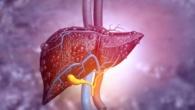
Vegetarianism: when it can improve health, and when it can harm
0
Vegetarianism has gained wide popularity in recent years. People choose this direction in nutrition for various reasons – religious, ethical and environmental.
Some supporters of such a diet fill this gap of animal origin with industrially processed foods, with a high content of sugar, salt, calories and fat
Studies show that, when optimally followed, vegetarians consume more important substances such as fiber, vitamin C, E and magnesium.
The main thing is to know your nutritional needs in order to plan a diet that satisfies them. .
A complete vegetarian diet can improve health. However, at the same time, it can increase the potential risk of certain deficiencies. Meat, fish and poultry provide a sufficient amount of protein and essential amino acids, unsaturated fatty acids, as well as trace elements such as iron, zinc, selenium and vitamin B12.
And such animal products as dairy products and eggs rich in calcium, B and D vitamins.
Vegetarians are at greater risk of protein, calcium, iron, iodine, and vitamin B12 deficiencies. This can lead to weakness, fatigue, anemia, decreased bone density, and thyroid problems.
Calcium
Abundant in dairy products.< /p>
Vitamin D
If you don't eat enough fortified foods and limit your sun exposure, you may need a vitamin D supplement.
< strong>Vitamin B12
This vitamin is found almost exclusively in animal products, so it can be difficult to get enough B12 on a vegan diet.
Protein
Plant sources include soy products and meat substitutes, legumes, lentils, nuts, seeds and whole grains.
Iron and zinc
Dried beans, peas, lentils, fortified cereals, whole grains, dark leafy greens, vegetables and dried fruits are good sources of iron. Because iron is not as easily absorbed from plant sources, the recommended iron intake for vegetarians is almost double the standard.









Leave a Reply